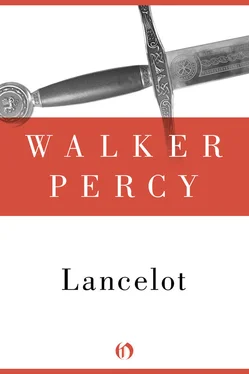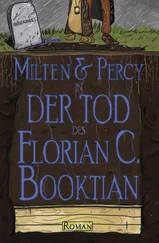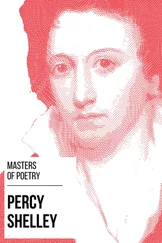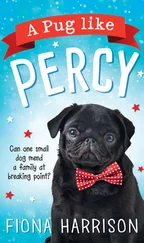So Elgin was smart, Elgin was well educated. Elgin could read and write better than most whites. And yet. Yet Elgin still talks muffle-mouthed, says ax for ask, sa-urdy for Saturday, chirren for children.
He was a slim but well-set-up youth with mauve brown skin, a narrow intense face, a non-Afro close clip as high off his ears and up his neck as a Young Republican’s, and a lately acquired frowning finicky manner which irritated me a little just as it irritates me in a certain kind of scientist who does not know what he does not know and discredits more than he should. Elgin was one of them. It was as if he had sailed in a single jump from Louisiana pickaninny playing marbles under a chinaberry tree to a smart-ass M.I.T. senior, leapfrogging not only the entire South but all of history as well. And maybe he knew what he was doing. From cotton patch to quantum physics and glad not to have stopped along the way.
But he and his family had yet another reason to be grateful to me, a slightly bogus reason to be sure, which I in my own slightly bogus-liberal fashion was content not to have set straight. He thought I saved his family from the Klan. In a way I did. His father, Ellis, and mother, Suellen, our faithful and until recently ill-paid retainers, and his little brother. Fluker, had all been threatened by the local Kluxers because Ellis’s church (he was its part-time preacher) had served as a meeting place for CORE or Snick or one of those. They burned a cross, threatened to burn the church and come “get” the Buells. It is true I went to see the Grand Kleagle and the harassment stopped. The story which I never had quite the energy or desire to correct was that in the grand mythic Lamar tradition I had confronted the Kleagle in his den, “called him out” with some such Southern Western shoot-out ultimatum as “Now listen here, you son of a bitch. I don’t know which one of you is bothering Ellis but I’m holding you responsible and if one hair of a Buell head is harmed, I’m going to shoot your ass off for you,” and so forth and so forth. I put a stop to it all right, but in a manner more suited to Southern complexities and realities than the simple dreams of the sixties, when there were only good people and bad people. I went to see the Grand Kleagle all right, who was none other than J. B. Jenkins, a big dumb boy who played offensive tackle with me in both high school and college. He was as big and dumb and as good a tackle as can be, managing even to flunk out of a state school later, no small achievement in those days, and had ever since operated not a Gulf Oil service station but a Gulf Coast Oil service station. He was a good family man, believed in Jesus Christ, America, the Southern way of life, hated Communists and liberals, and was not altogether wrong on any count. At any rate, all I said to him in the sweltering galvanized tin shack of his Gulf Coast Oil station was: “Now, J.B., I want you to do me a favor.” “What’s that, Lance, old buddy?” “You know what I want. I want you to lay off Ellis and his church.” “Now, goddamn, Lance, you know as well as I do ain’t nothing but a bunch of Jew Communists out there stirring up the niggers.” “Will you take my word for something, J.B.?” “You know I will.” “I swear to you there’s no Jews or Communists out there and I will swear to you that Ellis is a good Godfearing Baptist like you and you have nothing to fear from him.” “Yeah, but he is one more uppity nigger.” “Yeah, but he’s my nigger, J.B. He’s been working for us for forty years and you know that.” “Well, that’s true. Well, all right. Lance. Don’t worry about nothing. Lets us have a drink.” So we had a drink of straight three-dollar whiskey in that 110-degree iron shack. Sweat sprang off our heads like halos. And that was that.
Ah well. Like I told you, real life is more complicated and ambiguous than in the movies. Ellis Buell was grateful. Ellis Buell had seen too much TV and Gunsmoke. “You should have seen Mr. Lance call that white trash out.” And so forth.
His son Elgin was a different matter. Actually Elgin was the only one who didn’t care much one way or the other about such matters. Like Archimedes he was more interested, exclusively interested, in writing out his formulae and would not have cared or even noticed whether it was a Kluxer or a Roman soldier who lifted his hand against him.
Elgin. I do believe, would do what I asked, not out of gratitude (a very bad emotion as both he and I knew), but because he liked me and felt sorry for me. Unlike him I had been unable to escape into the simple complexities of science. All he had to do was solve the mystery of the universe, which may be difficult but is not as difficult as living an ordinary life.
I had counted too on my request intriguing him as a kind of mathematical game, which it was. It did.
Did it ever occur to you that after we went to college we never touched each other? Do you remember walking down Bourbon Street behind two Russian sailors who were holding hands? Do you remember sleeping in a motel bed in Jackson, Mississippi, with a whore between us? Why was it all right for us to simultaneously assault the poor whore between us but never once touch each other? Who is crazy, we or the Russians?
Ah, you touch my shoulder. Do you know that I am embarrassed?
Oh, Christ, there is something wrong with my mind. I’ve drawn a blank again. It’s a little frightening. I could use a drink. Everybody talks about the horrors of drink, which are real enough, but not about its beauties. Your God gave us wine, didn’t he, and threw good parties? Half-drunk, I can remember everything, see everything as it is and was, the beauty in it rather than the sadness. I could remember everything we ever did. There was a lovely looseness then and a letting go and a magical transformation of those sad Southern afternoons into a garden of delights. Wasn’t there? We had a good time, you and I. Then youth ended and you left for God. I joined the A.C.L.U. and became a liberal. Then a drunk. Sober, I could not bear to look at Belle Isle and the great oaks; they seemed so sad and used up and self-canceling. Five good drinks and they seemed themselves.
It’s not that I can’t remember. It’s all there, what happened, spread out like a map, but I have trouble collecting my thoughts, focusing. Perhaps I remember too well like memorizing a speech, reciting it a dozen times before the mirror, then when the time comes to speak, you can’t come up with the first word.
Once my father told me he had a recurring waking nightmare. What if one should simply fail in what one set out to do in life, fail utterly, cannot remember the first word, have the first thought, carry out the simplest action, complete the simplest task? Like an actor forgetting his lines and bringing the whole play to an awful embarrassing halt. What if one should rise to address the jury and forget? (My father had a Harvard law degree but never practiced.) Secretly I believe he was afraid that of all the people on earth he alone would fail and the world would come to an end out of shame for him.
With such a fear, what happens to a man? Nothing. He didn’t, couldn’t, try anything for fear the world would come to an end if he failed. So he became editor of the second best of the two weekly newspapers in a country parish, suffered from “weak lungs” whatever that is, not tuberculosis but a “tendency” toward it, and was a semi-invalid, spending his days writing poems and little historical vignettes. The high point of his life came when he was elected Poet Laureate of Feliciana Parish by the Kiwanis Club.
Let me tell you the family secret which not even you know, though you know everything else. But do you know that I honestly believe that his wife, my mother, Lily, cuckolded him too? I remember Uncle Harry, also called Buster, a distant cousin of hers, a handsome beefy Schenley salesman, ex-Realsilk salesman, who was always in and out of Belle Isle when I was a child. No one was gladder to see him than I because he brought the most expensive toys, Erector sets, scout knives with twenty blades, and would throw me ten feet in the air — happiness! squeals! Children are more easily bribed than cocker spaniels. And there was my father reclining on a lounge chair under an afghan on the upper gallery looking down the oak alley and writing poems which were not as good as Longfellow’s Evangeline, which is bad enough, but like it, and gentle historical vignettes whenever he located another old “non-Roman” church. Uncle Harry would come roaring up in his Buick convertible and holler out: I’m taking everybody joyriding to False River. My father would insist that Mother go: she needed the air: Suellen can look after me, can’t you, Suellen? “Sho now, you go on ahead. Miss Lily, you ain’t been anywhere all summer.” And off they’d go, we’d go — I sometimes but not always—“joyriding.” Christ, joyriding! Jesus, do you really imagine that—? Of course the question is not why but why not. Ha ha, what a laugh in a way. Because we were such an honorable family. And of course here is the most intriguing question of all: Did my father know all along?
Читать дальше












